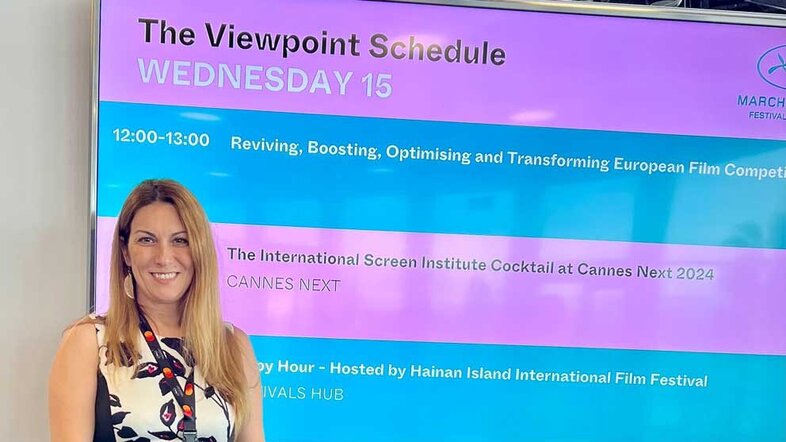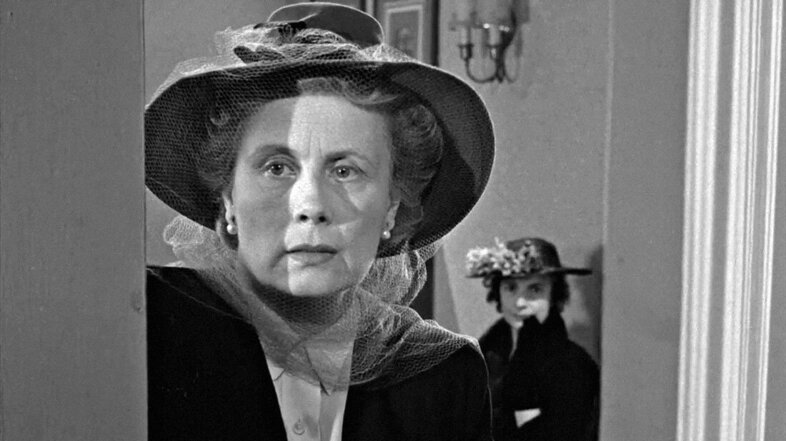How to reboot European cinema
Rudolphina: Why is an independent film industry of public and political interest?
Katharine Sarikakis: Market outreach is a desired outcome but not the priority for an independent creator which therefore means that there is another motivation. And that is often the willingness to deal with difficult, unpleasant subjects and to take a critical stand to whatever cultural or sociopolitical situations society is called to deal with. Film is bigger than just its admission ticket office or number of downloads. It is also a storytelling hub of meaning for democracy and for communal life.
Stories cannot be diverse if there is no diversity of experiences in making stories.Katharine Sarikakis
Rudolphina: You are in lead of the REBOOT project, which takes a closer look at European cinema. What is the idea of the project?
Katharine Sarikakis: The core aim of the project has been to reboot both our thinking about what it means to have a competitive European film industry and reboot dominant approaches into strengthening this kind (or kinds) of competitiveness. We try to understand what the different stakeholders consider competitive, to identify the gaps in these understandings which form policy and strategy and detect the problematic areas in determining competitiveness. For example, it would be problematic for European societies if Europe’s film industry only followed the market and European and national film policy considered the role of film as cultural and political expression insignificant or an afterthought.
Here in Vienna we lead the research part which focuses on young audiences, especially on children and young adults. There already exists a lot of research on the reasons why audiences go to movie theatres, also some research about young people’s preferences. However, we want to explore these aspects with a view to the future: What are the habits and preferences of young audiences? What does European cinema mean to young people? While we are speaking we are running a survey with 4000 young people and focus groups with about 500 children and teenagers across nine countries.
Rudolphina: What is special about young audiences and their way of watching movies?
Katharine Sarikakis: Young audiences are digital natives. And given the fact that they are also creators of visual content – from TikTok and other channels to makers of short movies – they have fundamentally, we hypothesise, different expectations and want to see different styles in movies. They can participate and understand what the process is behind cameras. They are creators and consumers at the same time. Young people today are also the policymakers of the future and the leaders of the industry.
Rudolphina: This year's Viennale celebrated, among others, Helene Thimig, an outstanding creative artist who was long described only as the "daughter or wife of". How diverse is European cinema today?
Katharine Sarikakis: Helene Thimig is a typical case of how women are being hidden from history, whether it is politics, technology, science or culture. That the Viennale has focussedon her work shows how important conscious leadership of such institutions is. They can contribute to social justice and create role models for the youth. Still only one fourth of the leading producing creators in the European film industry is female. Women tend to work in teams rather than present themselves as sole story creators. The gender gap is also an aspect we investigate in our project built in all our research design and activities seamlessly. We understand that the stories cannot be diverse if there is no diversity of experiences in making those stories.
Rudolphina: Is the Viennale a fixed date in your calendar?
Katharine Sarikakis: Absolutely! I follow the line-up watch as many movies as my time allows. In general, I like arthouse films and the traditionally called Auteur cinema, but I do appreciate "commercial" movies, too: the happy ending of Hollywood movies brings a sense of justice and hope for audiences- hence their popularity among other reasons. However films overall, tell the story of the hero in their journey and the katharsis, the solution or "cleansing" elements that go back to Ancient Greek drama..
Rudolphina: Thank you for the interview! (hm)
Her transdisciplinary work in policies can be seen in her collaborations with international organisations, such as the OSCE and the Council of Europe, as well as European organisations for freedom of expression.

